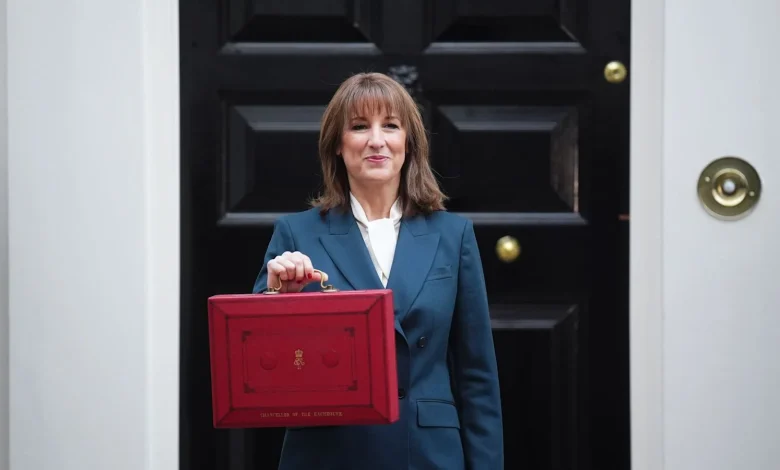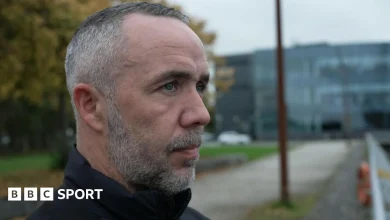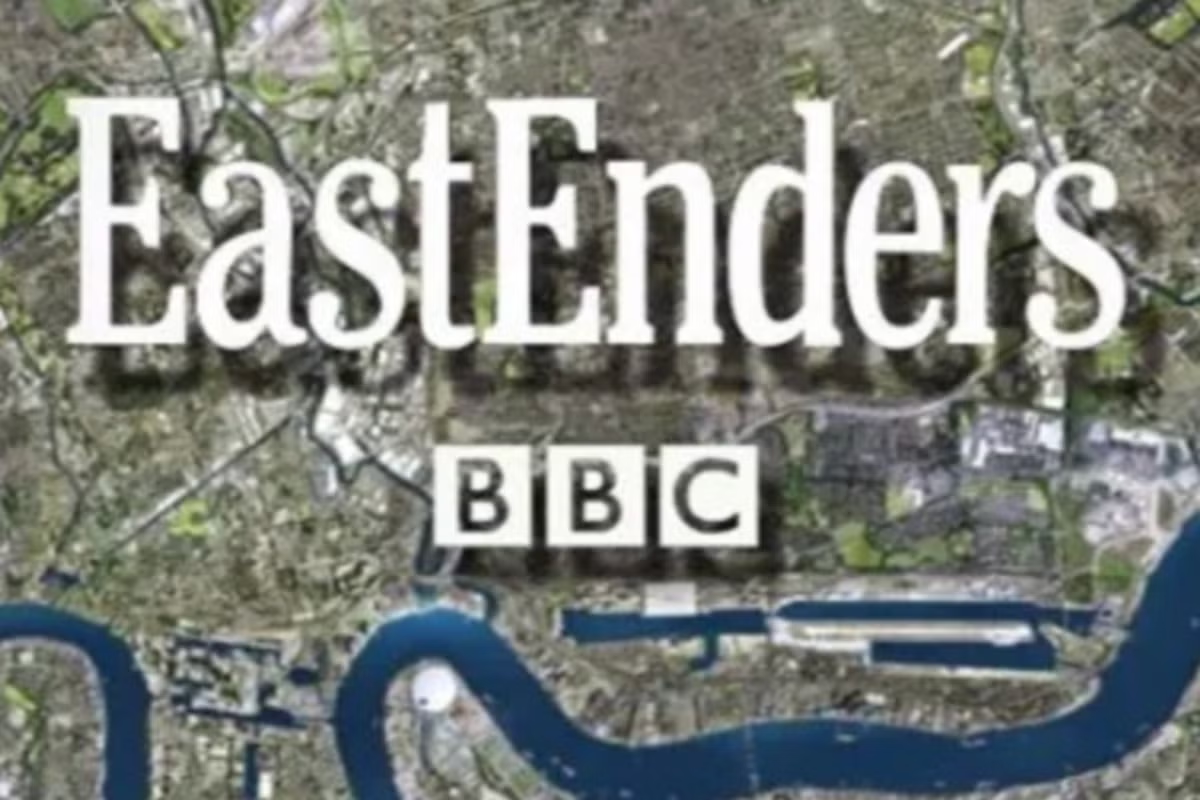Budget 2025: Key takeaways at a glance | ITV News

On Wednesday, Rachel Reeves set out details of her second Budget since becoming chancellor.
Speaking in the Commons, Reeves announced her decision to extend the freeze on income thresholds, urging “everyone to make a contribution”.
She also confirmed the removal of the two-child benefit cap, a tax on homes worth £2 million, and changes to salary-sacrificed pension contributions.
Many details of her plan for the economy were leaked early in error by the government’s independent spending watchdog.
The Office for Budget Responsibility (OBR) has apologised for the incident and said it has launched an investigation. Reeves described it as a “deeply disappointing and serious error” from the watchdog.
Reeves said: “These are my choices, the right choices, for a fairer, a stronger, and a more secure Britain.” She claimed the plans would “bring down inflation and provide immediate relief for families”.
ITV News breaks down the Budget’s main points here.
Reeves blamed the OBR for the early release of her budget plans
Income tax thresholds
The government will extend the existing freezes to personal tax thresholds for another three years until 2030-31, in a move that is expected to make the Treasury £7.5 billion richer.
The freeze in tax thresholds would result in 780,000 more basic-rate, 920,000 more higher-rate, and 4,000 more additional-rate income tax payers in 2029/30.
This policy was first introduced in 2021 by then-chancellor Rishi Sunak and was due to end in 2028. Until then, the UK income tax thresholds were typically increased each year in line with inflation.
The move will mean that more people are being brought into higher bands and having to pay more income tax as wages continue to rise.
Reeves admitted her plans for income tax thresholds would impact “working people”
Two-child benefit cap
Reeves revealed the two-child benefit cap is also being removed at an estimated cost of £3 billion by 2029-30.
The two-child benefit cap restricts the child tax credit and universal credit (UC) to the first two children in most households and was introduced by the Conservatives in 2015, in an effort to encourage out-of-work parents into employment.
Reeves told the Commons: “We on this side of the House do not believe that the solution to a broken welfare system is to punish the most vulnerable children.”
More than 1.5 million children are currently living in households affected by the two-child limit, which is around one in nine children in the UK.
It is estimated that scrapping the cap could lift 350,000 children out of poverty and reduce the depth of poverty for a further 800,000 children.
Scrapping the policy is a dramatic shift from the government’s stance a year ago.
It was not in Labour’s manifesto, and last year, Starmer suspended seven MPs who voted in favour of an SNP motion calling for the cap to be abolished.
Watch as Reeves reveals the scrapping of the two-child benefit cap
Pensions
National Insurance will be charged on salary-sacrificed pension contributions above an annual £2,000 threshold from April 2029, Reeves said.
Salary sacrifice enables people to maintain their take-home pay, as people end up paying lower national insurance (NI) contributions.
There are also NI advantages for employers, helping them to offer more generous workplace benefits.
Reducing the use of the scheme would mean more government revenue, with some reports suggesting between £2 billion to £4 billion could be raised, depending on how salary sacrifice was curbed.
However, pension industry bodies have warned it could mean people and employers cutting back on the amounts going into pensions, storing up problems for pension savers, and putting more cost pressures on businesses.
‘Mansion’ tax
A high-value council tax surcharge on properties worth over £2 million is set to raise £0.4 billion in 2029-30.
There will be four price bands with the surcharge starting at £2,500 a year for properties worth more than £2 million, and rising to £7,500 for properties worth more than £5 million.
The charge will sit on top of the usual council tax and will be applied to property owners, rather than tenants.
Energy bills
The chancellor said she was taking action to get energy bills down and cut the cost of living, with an average of £150 cut from the average household bill from next year.
Reeves said she would do this by scrapping the ECO (Energy Company Obligation) scheme introduced by the Tories in government, which she claimed had cost households £1.7 billion a year on their bills.
Gambling
Reeves will increase the levy on a form of gambling known as “remote gaming” from 21% to 40% next year, claiming it was associated with the “highest levels of harm”.
She will also abolish bingo duty from next April. Both of these steps are estimated to raise £1.1 billion by 2029-30.
Business taxes
The chancellor said she would introduce “permanently lower” business rates for more than 750,000 retail, hospitality, and leisure properties.
The rates, which Reeves said would be the “lowest rates since 1991”, will be paid for through higher rates on properties worth more than £500,000, including the warehouses used by “online giants”.
Watch as Chancellor Rachel Reeves poses on Downing Street holding the distinctive red box
Fuel duty
Reeves will retain the 5p cut in fuel duty until September 2026, when it will be reversed through a staggered approach.
Electric vehicles
Drivers of battery electric cars will be hit by a 3p per mile tax from April 2028, with the charge to rise annually with inflation.
The Treasury faces a reduction in revenue from fuel duty, which raised just under £25 billion in the 2024/25 financial year, as more drivers move from petrol or diesel cars to EVs.
Property, savings, and dividends
Reeves has announced that tax rates on property, savings, and dividend income will rise by two percentage points.
She said: “Currently, a landlord with an income of £25,000 will pay nearly £1,200 less in tax than their tenant with the same salary, because no National Insurance is charged on property, dividend or savings income.
“It’s not fair that the tax system treats different types of income so differently, and so I will increase the basic and higher rate of tax on property, savings, and dividend income by two percentage points, and the additional rate of tax on property and savings income by two percentage points.”
Isa reforms
The annual cash Isa limit will be reduced to £12,000. The aim of reducing the limit from £20,000 is to encourage more people to invest their money in stocks and shares instead.
Subscribe for free to our weekly newsletter for exclusive and original coverage from ITV News. Direct to your inbox every Friday morning.
NHS
The chancellor confirmed a £300 million investment for NHS technology in order to boost productivity and cut time spent on administrative tasks.
It will focus on improving access to GPs and supporting people with long-term health conditions in areas with high deprivation, before being expanded to support other patients.
The government says the new health centres will bring care closer to patients’ homes, and will focus on improving access to GPs and supporting people with long-term health conditions in areas with high deprivation.
It will then be expanded to support other patients.
Investment in technology will allow more administrative tasks to be automated and improve access to patient information, the government said.
National living and minimum wage
The national minimum Wage and the national living wage will rise from April, boosting the pay of around 2.7 million people.
From next April, the national living wage will rise by 4.1% to £12.71 an hour for eligible workers aged 21 and over, which the government said will increase gross annual earnings of a full-time worker on the rate by £900, benefiting around 2.4 million low-paid workers.
The national minimum wage rate for 18 to 20-year-olds will increase by 8.5% to £10.85 an hour, narrowing the gap with the national living wage.
This will mean an annual earnings increase of £1,500 for a full-time worker.
The national living wage for 16 to 17-year-olds and those on apprenticeships will increase by 6% to £8 an hour.
Reeves claimed the government had “defied” the forecasts after the OBR revealed an increase in its projections for economic growth
Rail fares
The chancellor confirmed rail fares will be frozen for the first time in 30 years, with commuters who travel on the most expensive routes expected to save over £300 per year.
The freeze will apply to all regulated fares, including seasons, peak returns for commuters, and off-peak returns between major cities, benefitting more than a billion passenger journey’s said the government.
Prescriptions
Prescription charges in England will be frozen at £9.90 per item next year, Reeves confirmed. Meanwhile, three-month and annual pre-payment certificates will also be frozen for 2026/27.
The move is an extension of a freeze on prescription charges announced in April, which was the first in three years.
The latest freeze is expected to save patients £12 million next year, according to the government.
Milkshake tax
A sugar tax on pre-packaged milkshakes and lattes has been announced, ending an exemption for milk-based drinks from the existing tax.
The threshold for the tax will also be reduced to 4.5 grams of sugar per 100ml. The move will affect packaged milkshakes and coffees, but not drinks made in cafes and restaurants.
Tourist tax
Mayors in England will be given powers to impose a “modest” tourist tax on visitors staying in hotels, bed and breakfasts, guest houses, and holiday lets.
The measure has previously been called for by regional leaders, including London Mayor Sir Sadiq Khan and Greater Manchester’s Andy Burnham.
Officials said it would bring English cities into line with other tourist destinations around the world, including New York, Paris, and Milan, which already charge a tourist tax.
However, it has been condemned as “damaging” by the hospitality industry body.
From Westminster to Washington DC – our political experts are across all the latest key talking points. Listen to the latest episode below…





